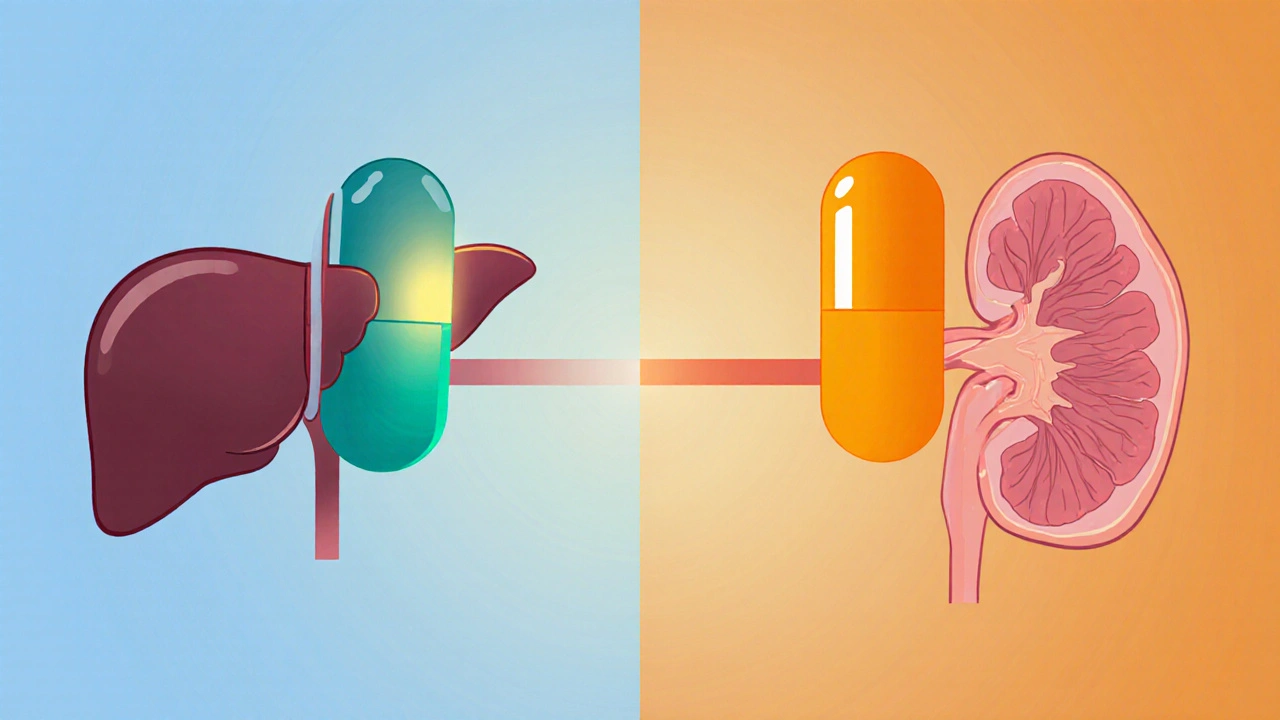Compare alfacalcidol and calcitriol, learn how each works, best uses, dosing, side‑effects and how to pick the right vitamin D analog for kidney or bone health.
Calcitriol: Active Vitamin D — What It Does and Why It Matters
Calcitriol is the active form of vitamin D your body uses to control calcium and phosphate. Doctors prescribe it when the body can’t convert vitamin D on its own — for example in chronic kidney disease, hypoparathyroidism, or certain bone problems. It helps the gut absorb calcium and keeps bones healthy, but it can cause too much calcium if not used carefully.
When doctors prescribe calcitriol
People who often need calcitriol include those with low parathyroid hormone, advanced kidney disease, or certain types of rickets. It’s also used sometimes in skin conditions like psoriasis when topical forms are chosen. Your doctor picks calcitriol when regular vitamin D (cholecalciferol or ergocalciferol) won’t work because the body can’t activate it.
Calcitriol comes as pills, capsules, or liquid drops and in some places as an injection. Brand names you might see include Rocaltrol. Dosing varies a lot: some people take tiny daily doses, others use it every other day. Doctors start low and adjust based on blood tests.
How to take it safely
Always follow the exact dose your doctor gives. Take oral calcitriol with or without food, but stick to the same routine so your levels stay steady. Don’t add large amounts of vitamin D or calcium unless your doctor says it’s okay. Over-the-counter supplements can interact and raise calcium too much.
Watch for symptoms of high calcium — nausea, constipation, frequent thirst, confusion, or muscle weakness. If you notice these, call your healthcare provider and stop taking extra calcium or vitamin D until you get checked.
Monitoring is simple but important. Your doctor will check blood calcium, phosphate, and sometimes kidney function soon after starting treatment and periodically afterward. They’ll also check urine calcium in some cases. Tests guide dose changes — the goal is effective treatment without letting calcium climb too high.
Drug interactions matter. Thiazide diuretics can raise blood calcium when used with calcitriol. Other interactions include digoxin (risk for arrhythmia if calcium rises) and magnesium-containing antacids. Tell your doctor about every medicine and supplement you take.
Pregnancy and breastfeeding require medical advice — sometimes calcitriol is needed, but dosing and risks must be reviewed by a clinician. If you buy medications online, pick verified pharmacies and keep your prescriber in the loop.
Calcitriol is powerful and useful when used right. With proper dosing, regular lab checks, and clear communication with your doctor, it can correct dangerous low-calcium problems and protect bone health without unnecessary risk.
Everything you need to know before taking Rocaltrol: how it works, who needs it, potential side effects, and practical tips for safe use.


